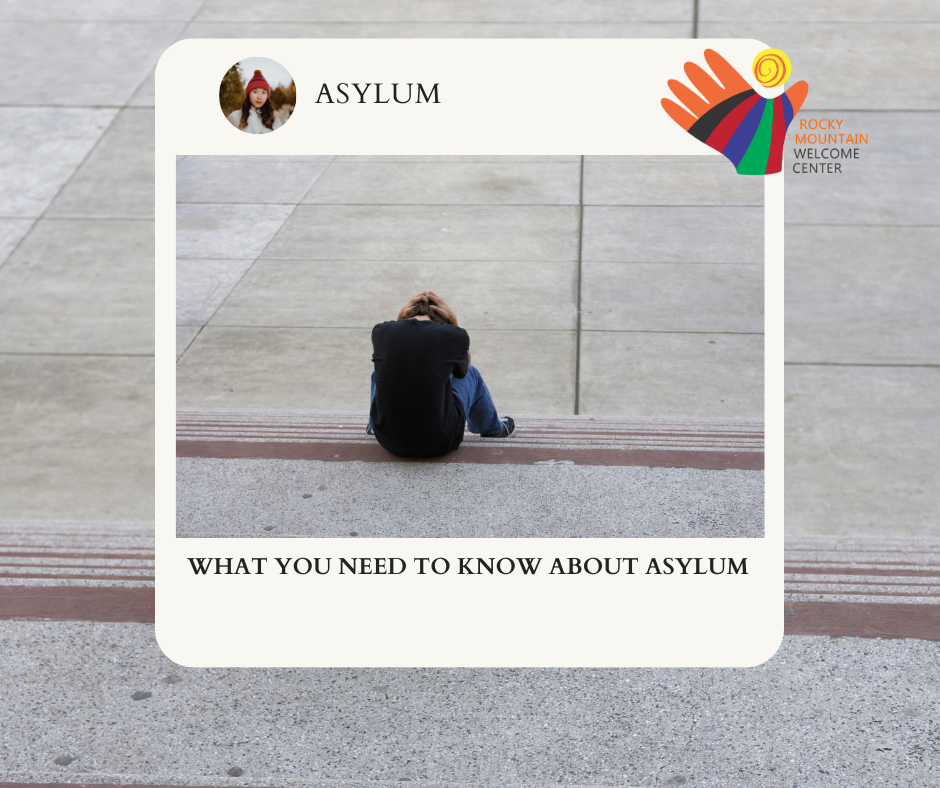What You Need to Know About Asylum
- Diana Higuera
- Mar 5, 2025
- 4 min read

By Jack Rosenberry One of the most complicated immigration topics – and one with many misperceptions around it – is asylum.
“Everybody thinks they have an asylum claim when they come to the U.S.,” immigration attorney Brandon Roché said. But unfortunately very few have a claim with an actual chance of winning.
The difficulty in gaining asylum starts with how it is defined and the legal proof that must be submitted to earn the status.
Definition
Asylum is defined as protection against persecution in one’s home country that takes place because of the person’s membership in a protected class, specifically race, nationality, religion, political views, and/or membership in a particular social group, such as sexual orientation.
An asylum claim must further demonstrate that (1) the persecution threatens serious harm, not just trivial problems; and (2) is being done by either the government itself (e.g. by police) or by some other actor that the government either cannot or will not stop from engaging in the persecution. This means situations such as economic hardship or the desire to escape from an area affected by a natural disaster or crime cannot be the basis of an asylum claim.
It’s also necessary for the claimant to prove they cannot move elsewhere to escape the harm. Immigration officials take the view that even if the person does need to move someplace else, “It doesn’t have to be the United States,” Roché said.
Starting point: credibility interview
An asylum claim usually starts with something called a “credible fear interview.” This is an evaluation by an immigration official, done when the person enters the U.S., to determine whether the claim is credible enough to think that asylum might someday be granted.
For those who do get an interview, the examiner could find that the claim is not credible, in which case the person making it will be sent back to their home country. However, if the examiner thinks the claim is credible, the person may be released on bond and given one year to actually file the asylum application. Applications may sometimes be accepted after more than a year, but only if significant extenuating circumstances can be shown.
At present, border-crossing restrictions are making it nearly impossible for people even to reach U.S. jurisdiction for such interviews. Also, the recent reinstatement of the Remain in Mexico policy means that those who “pass” the interview at the southern U.S. border and are given the go-ahead to apply for asylum may be denied entry and told to wait elsewhere for further notification about filing their claim.
Evidence needed
A successful asylum application requires presentation of evidence documenting all elements of the claim: membership in the protected class, history or likelihood of serious persecution, and the role of the government in causing or enabling the persecution. Ideally, the claimant would be able to present things such as police records showing arrests, hospital records that may document abuse, documents or social media posts indicating threats, and testimony or legal affidavits supporting the claim.
But such evidence is not always easy to produce once the claim reaches a hearing before a judge, Roché said. Documents can get misplaced or destroyed, phones with threatening text messages can be lost or damaged, social media accounts are often deleted. Testimony from anyone in the home country must be taken via video chat from a secure setting in the U.S. Embassy, which is not always possible. (In countries that have no diplomatic relations with the U.S., such as Venezuela, it’s impossible.)
Roché said his number one piece of advice for anyone hoping to make an asylum claim is to retain any materials that could provide evidence of persecution. Have friends or family members in the home country do what they can to assemble paper records and don’t discard phones or delete social media accounts, for example.
Need for a lawyer
A common misperception is that asylum is automatic with the filing of the application. “People all the time tell me, ‘I have asylum’ when they really don’t,” Roché said. They may have applied, but sometimes have not even taken that step. “A lot of people confuse passing the credible fear interview at the border with being granted asylum, and that is 100 percent not the case.”
The immigration court does not assess a filing fee on asylum applications, but Roché strongly advises against trying to gain asylum without the help of a qualified immigration attorney. “If you're denied asylum, it's not like you can refile later and try again,” he said. If anything about the claim is deemed fraudulent, which could be just submitting something that wasn't accurate, the applicant could be barred from any future immigration relief because future courts will assume that everything the person files is fraudulent.
Because such cases can be complicated, Roché said, a qualified immigration attorney likely will charge around $10,000 to $15,000; it varies widely depending on the circumstances. Such cases are very time consuming between assembling the evidence, preparing for a hearing on the merits of the case, and often appearing in court multiple times beforehand, he explained.
Even with an evidence-based case prepared with an attorney’s assistance, nothing is guaranteed. Judges have wide latitude to reject any evidence that they don’t find credible. “It’s very easy to deny an asylum claim on almost any grounds,” Roché said.
Immigration law is the same nationwide, but jurisdictions around the country have different criteria for judging eligibility, leading to denial rates for asylum applications as high as 90 percent in some places. “Even in ‘good’ jurisdictions more than 50 percent of cases are denied,” Roché said.
The process also can be very drawn out, lasting “many, many years” in some cases, Roché said. Immigration policies regarding how cases are prioritized change frequently, which adds to the uncertainty of how long the process could last, he added.



Comments